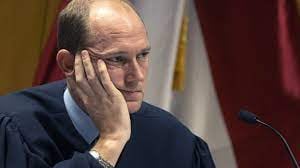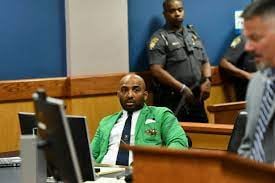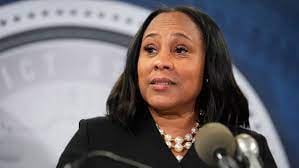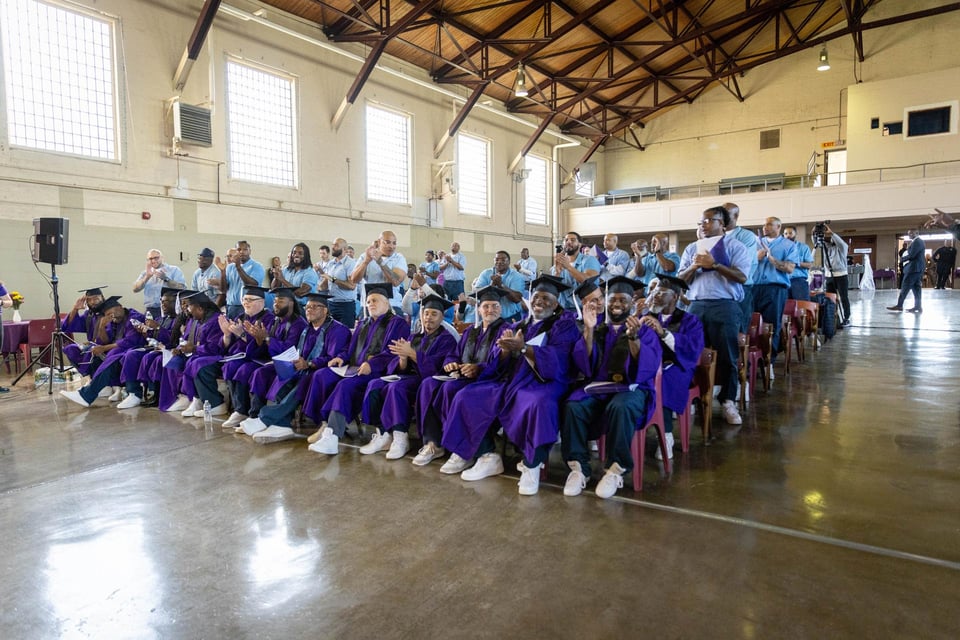Wednesday,November 22,2023. Annette’s News Roundup.
I think the Roundup makes people feel not so alone.
To read an article excerpted in this Roundup, click on its blue title. Each “blue” article is hyperlinked so you can read the whole article.
Please feel free to share.
Invite at least one other person to subscribe today! https://buttondown.email/AnnettesNewsRoundup
—————————————————————-
Breaking News. 💥💥💥
Israeli Cabinet approves cease-fire with Hamas that includes the release of some 50 hostages.

JERUSALEM (AP) — Israel’s Cabinet on Wednesday approved a temporary cease-fire with the Hamas militant group that is expected to bring the first halt in fighting in a devastating six-week war and win freedom for dozens of hostages held captive in the Gaza Strip.
The deal calls for a four-day cease-fire, during which Israel will halt its military offensive in Gaza while Hamas frees “at least” 50 of the roughly 240 hostages it and other militants are holding, Prime Minister Benjamin Netanyahu’s office said. The first hostages to be released are women and children.
“The government of Israel is committed to bringing all of the hostages home. Tonight, the government approved the outline for the first stage of achieving this goal,” the office said in a statement.
Media reports ahead of the vote said Israel would free some 150 Palestinian prisoners and allow additional humanitarian aid into Gaza as part of the deal, but the Israeli statement made no mention of either of these elements. It was not clear when the truce, brokered by the U.S. and Qatar, would go into effect. (Associated Press).
I welcome the deal to secure the release of hostages taken by Hamas during its brutal assault against Israel on October 7th.⁰⁰I'm gratified that these brave souls, who have endured an unspeakable ordeal, will be reunited with their families once this deal is fully implemented.
— President Biden (@POTUS) November 22, 2023
—————————————————————-
Joe is always busy.
BREAKING: New reports are coming out that President Biden directly involved himself in the hostage negotiations between Israel and Hamas. Israeli Prime Minister Benjamin Netanyahu is directly crediting Biden with securing the release of more hostages at a lower cost.
— Biden’s Wins (@BidensWins) November 21, 2023
Hidden junk fees are taking real money out of the pockets of American families.
— President Biden (@POTUS) November 21, 2023
Surprise banking overdraft fees, excessive credit card late fees, and hidden hotel booking fees add up.
My Administration is banning junk fees to lower the cost of everyday living for Americans.

FLOTUS too.
First lady Jill Biden received the official 2023 White House Christmas Tree Monday — an 18-and-a-half-foot tall Native True fir from North Carolina. https://t.co/yy3yrFjR0S pic.twitter.com/q4qbSvl4Hq
— ABC News (@ABC) November 20, 2023
—————————————————————-
We have been warned about the dangers of Trump.
Hillary warned us in 2016, but now the warnings are multiplying by x squared.
Warnings from Former Members of Trump’s Inner Circle.
Many former Trump aides say he shouldn’t be president. Will it matter?
Critics are grappling with how they can puncture Trump’s candidacy in 2024 and whether their voices will have any impact.

In 2018, White House Chief of Staff John F. Kelly watches as President Donald Trump speaks during a meeting with North Korean defectors in the Oval Office.
John F. Kelly, the longest-serving chief of staff in President Donald Trump’s White House, watches Trump dominate the GOP primary with increasing despair.
“What’s going on in the country that a single person thinks this guy would still be a good president when he’s said the things he’s said and done the things he’s done?” Kelly said in a recent interview. “It’s beyond my comprehension he has the support he has.”
Kelly, a retired four-star general, said he didn’t know what to do — or what he could do — to help people see it his way.
“I came out and told people the awful things he said about wounded soldiers, and it didn’t have half a day’s bounce. You had his attorney general Bill Barr come out, and not a half a day’s bounce. If anything, his numbers go up. It might even move the needle in the wrong direction. I think we’re in a dangerous zone in our country,” he said.
No president has ever attracted more public detractors who were formerly in his inner circle. They are closely watching his rise — cruising in the GOP nomination contest and, in most polls, tying or even leading President Biden in a general election matchup — with alarm. Among them are his former vice president, top military advisers, lawyers, some members of his Cabinet, economic advisers, press officials and campaign aides, some of whom are working for other candidates.
Among their reasons for opposing a second Trump term, they cite the 91 criminal charges against him, his attempts to overturn the 2020 election, his false claims of election fraud, his incendiary rhetoric in office, his desire to weaponize the Justice Department, his chaotic management style, his likely personnel choices in a second term, and his affinity for dictators.
Interviews with 16 former Trump advisers — some of whom spoke on the condition of anonymity to discuss their former boss — show they are grappling with how they can puncture Trump’s candidacy in 2024, whether they can or should coordinate with one another and whether their voices will even matter.
Additionally, more than a dozen people once in his employ could end up taking the stand and providing testimony as part of multiple criminal trials, according to people with knowledge of the cases and court documents.
At the same time, even some who have publicly declared Trump unfit for office have said they would still support him over Biden in 2024.
So far, Trump has surged toward the GOP nomination even as former aides critical of him have blanketed the airwaves, giving scathing speeches, testifying on camera in front of congressional committees and penning books — shaking off the kinds of condemnations that could mortally wound another politician.
“These media whores are always looking for their next grift — whether it’s book deals or cable news contracts — because they know their entire worth as human beings revolve around talking about President Trump,” said Steven Cheung, a Trump spokesman. “They clearly don’t own any mirrors because if they did, they would not be able to look at themselves every day knowing what they’re doing is hurting the country. These charlatans are disgusting and should be wholly ignored.”
Trump advisers note he has a coterie of loyal aides and advisers such as Stephen Miller, Kellyanne Conway and Dan Scavino, who have been allied with him for years. Arkansas Gov. Sarah Huckabee Sanders (R), a former press secretary, endorsed Trump onstage at a rally in Florida last week. Other former top aides are putting together a 2025 plan and want to rejoin the administration.
“The time has come to return to the normal policies of the Trump era which created a safer, stronger, and more prosperous America,” Sanders said.

In 2019, national security adviser John Bolton and White House press secretary Stephanie Grisham listen during an Oval Office meeting.
In recent fundraisers, Trump has been questioned by donors on multiple occasions about his personnel choices and has attacked former officials who have spoken out against him, according to people familiar with the questioning. Trump has argued that while in the White House, he listened to people he should not have — and made bad hires, particularly at the Pentagon and Justice. Donors have expressed concern that Trump hired so many people who have attacked him, people familiar with the conversations said.
This time, Trump said, he would look out for people who are loyal and “smart.” A second term in office, people close to him say, would have people who “actually support President Trump,” in the words of one adviser.
“I learned how deep the deep state is,” he recently told donors at an event.
Every president has the occasional critic from within his administration. Scott McClellan, former press secretary in the George W. Bush White House, rattled his former colleagues with a scathing look behind the scenes. Former defense secretary Robert Gates offered a harsh critiqueof President Barack Obama’s judgments that was used as a cudgel by Obama’s critics.
What makes Trump different is how many former aides have come out against him, said Douglas Brinkley, a presidential historian, and how vituperative their criticisms have been. Their motives are varied, and while some are fueled by genuine concerns, others, he said, are driven by a new incentive structure. Some of the attacks could also be undercut because voters see the former aides as enablers who are now simply looking to reclaim their reputations.
“You can get paid for a Washington insider book that dishes dirt; there’s been a corrosion of loyalty towards presidents. It wasn’t always that way,” Brinkley said. “And you have a lot of people who want to be decontaminated from Trump because he’s become a symbol of authoritarianism.”
Some Democrats and Republicans say attacks on Trump’s character and behavior have been ineffective because voters have heard similar criticism for eight years. “Everyone knows who Trump is,” said one person close to the former president, who spoke on the condition of anonymity to describe campaign strategy. “It’s not like you’re going to say he’s a bad person, and someone is going to change their mind immediately.”
Ahead of the 2020 election, Democrats learned through focus groups that attacks on Trump’s character did not work as well with independent voters as attacks on his record, according to a prominent Democrat briefed on the work conducted by the Democratic National Committee. Repeatedly, voters said they knew who Trump was and his personal shortcomings did not dissuade them.
Still, what also makes Trump different is the way in which some former advisers speak about him — not griping over a policy disagreement or a personnel choice — but over his fitness to be president and what he might do in a second term.
Former White House counsel Ty Cobb, who defended Trump during the probe into Russian interference in the 2016 election and once was seen as a loyal soldier, said it was imperative for people to vote against Trump.
“He has never cared about America, its citizens, its future or anything but himself. In fact, as history well shows from his divisive lies, as well as from his unrestrained contempt for the rule of law and his related crimes, his conduct and mere existence have hastened the demise of democracy and of the nation,” Cobb wrote in an email. “Our adversaries and our allies both recognize that even his potential reelection diminishes America on the world stage and ensures continued acceleration of the domestic decline we are currently enduring. If that reelection actually happens, the consequences will extinguish what, if anything, remains of the American Dream.”
John Bolton, his former national security adviser, said he had grown frustrated watching many of the Trump attacks fail. Bolton wrote a best-selling book that was sharply critical of Trump on national security; Trump wanted him investigated and charged for writing it.
Bolton said he once hoped to argue Trump wasn’t electable. That argument will not work because Biden is so unpopular, Bolton says.
“So many things that I thought would be telling arguments about Trump — his character, you name it — have proven ineffective,” Bolton said. “The only thing that’s left is Trump’s not fit to be president. He doesn’t have a conservative philosophy. He follows his own personal interest, and that’s not what you need in a president.”
Stephanie Grisham, who worked on the 2016 campaign and then as press secretary to Trump and chief of staff to Melania Trump, said she fears his ascent to the White House. She said a lot of former advisers are weighing what to do — and discussing it with one another.
“Anytime you speak out, all the haters come out and say you’re just disgruntled. All the Democrats come out and say it’s too little, too late. I do think that’s where so many people are,” she said.
More important, Grisham said, is the backlash that comes with Trump attacking you — or his supporters turning on you.
“It’s actual threats for your safety and your family. As we get closer to the election, it’s only going to get more intense. Why am I putting my family and my friends through this if we’re now going to get threats?” Grisham said.
There were calls trying to organize opposition to Trump after he left the White House that fell apart once the group splintered over internal disagreements, Grisham said. Some of the members didn’t get along, and the calls soon stopped, she said.
Grisham said she hoped a group of former aides would come together next year, led by officials like Kelly and Attorney General William P. Barr, but it would take organization and money. Interviews with nine other former aides indicated that no such group currently exists.
Former vice president Mike Pence is not planning to take a public role for or against Trump, according to people close to him. Others close to many former Cabinet officials say they will be silent. Elaine Chao, the former transportation secretary who resigned, Jim Mattis, the former defense secretary, and others have signaled they do not relish a big fight with Trump even as they don’t want him to be the nominee. Former defense secretary Mark T. Esper, who has sometimes leveled criticisms at Trump, did not respond to requests for comment.
Another prominent former official said he was debating whether speaking out would lead to clients dropping him. “If I thought it would make a difference, I’d be more willing to do it. But you’re taking a lot of financial risks, and I haven’t seen any evidence it really matters,” this person said.
A third former official said that many were considering speaking out if Trump became the nominee and was in a position to win. “You want to remind people at the last minute what kind of crazy they might be getting again. I don’t think it works until it’s September or October.”
Some aides say they don’t want Trump to be president again but are loath to be viewed as helping a Democrat. Members of that group, including Barr, have argued Trump is both unfit to serve and has probably committed crimes — but that they still may vote for him over a Democrat.
Marc Short, Pence’s longtime chief of staff and a former Trump adviser, has been sharply critical of the former president.
“If it’s Biden versus Trump, the implicit assumption is, efforts to hurt Trump are going to benefit Biden,” Short said. “If you’re putting yourself against the Constitution, I think it’s disqualifying, but I wouldn’t want to be helping Biden.” (Washington Post).
Warnings from Conservative Lawyers.
America Needs a Pro-Democracy Conservative Legal Establishment.

The sun sets on a statue of a female figure symbolizing justice on the grounds of the U.S. Supreme Court.
American democracy, the Constitution and the rule of law are the righteous causes of our times, and the nation’s legal profession is obligated to support them. But with the acquiescence of the larger conservative legal movement, these pillars of our system of governance are increasingly in peril. The dangers will only grow should Donald Trump be returned to the White House next November.
Recent reporting about plans for a second Trump presidency are frightening. He would stock his administration with partisan loyalists committed to fast-tracking his agenda and sidestepping — if not circumventing altogether — existing laws and long-established legal norms. This would include appointing to high public office political appointees to rubber-stamp his plans to investigate and exact retribution against his political opponents; make federal public servants removable at will by the president himself; and invoke special powers to take unilateral action on First Amendment-protected activities, criminal justice, elections, immigration and more.
We have seen him try this before, though fortunately he was thwarted — he would say “betrayed”— by executive branch lawyers and by judges who refused to go along with his more draconian and often unlawful policies and his effort to remain in office after being cast out by voters. But should Mr. Trump return to the White House, he will arrive with a coterie of lawyers and advisers who, like him, are determined not to be thwarted again.
The Federalist Society, long the standard-bearer for the conservative legal movement, has failed to respond in this period of crisis.
That is why we need an organization of conservative lawyers committed to the foundational constitutional principles we once all agreed upon: the primacy of American democracy, the sanctity of the Constitution and the rule of law, the independence of the courts, the inviolability of elections and mutual support among those tasked with the solemn responsibility of enforcing the laws of the United States. This new organization must step up, speak out and defend these ideals.
Leaders of the legal profession should be asking themselves, “What role did we play in creating this ongoing legal emergency?” But so far, there has been no such post-mortem reflection, and none appears on the horizon. Many lawyers who served in the last administration — and many on the outside who occupy positions of influence within the conservative legal community — have instead stood largely silent, assenting to the recent assaults on America’s fragile democracy.
We were members of the Federalist Society or followed the organization early in our careers. Created in response to left-liberal domination of the courts, it served a principled role, connecting young lawyers with one another and with career opportunities, promoting constitutional scholarship and ultimately providing candidates for the federal bench and Supreme Court.
But the Federalist Society has conspicuously declined to speak out against the constitutional and other legal excesses of Mr. Trump and his administration. Most notably, it has failed to reckon with his effort to overturn the last presidential election and his continued denial that he lost that election. When White House lawyers are inventing cockamamie theories to stop the peaceful transition of power and copping pleas to avoid jail time, it’s clear we in the legal profession have come to a crisis point.
We are thankful that there were lawyers in the Trump administration who opted to resign or be fired rather than advance his flagrantly unconstitutional schemes. They should be lauded.
But these exceptions were notably few and far between. More alarming is the growing crowd of grifters, frauds and con men willing to subvert the Constitution and long-established constitutional principles for the whims of political expediency. The actions of these conservative Republican lawyers are increasingly becoming the new normal. For a group of lawyers sworn to uphold the Constitution, this is an indictment of the nation’s legal profession. Any legal movement that could foment such a constitutional abdication and attract a sufficient number of lawyers willing to advocate its unlawful causes is ripe for a major reckoning.
We must rebuild a conservative legal movement that supports and defends American democracy, the Constitution and the rule of law and that incentivizes and promotes those lawyers who are prepared to do the same. To that end, we have formed a nonprofit organization, the Society for the Rule of Law Institute, to bring sanity back to conservative lawyering and jurisprudence.
There is a need and demand for this new legal movement that the legal profession can readily meet. Pro-democracy, pro-rule-of-law lawyers who populate our law school campuses, law firms and the courts decry what is happening in our profession. They deserve an outlet to productively channel these sentiments.
Originally formed in 2018 as Checks & Balances during what we took to be the height of Mr. Trump’s threat to the rule of law, the organization spoke out against his transgressions. Since then, the legal landscape has deteriorated to a degree we failed to imagine, with Mr. Trump and his allies explicitly threatening to upend fundamental tenets of the American constitutional system if returned to power.
We believe it is necessary to build a legal movement with the capability to recruit and engage dues-paying members, file legal briefs, provide mentorship and career opportunities, convene supporters and speak out as vocally and forthrightly as is necessary to meet the urgency that this moment requires.
First and foremost, this movement will work to inspire young legal talent and connect them with professional opportunities that will enable them to fulfill their vast potential without having to compromise their convictions.
Second, the movement will focus on building a large body of scholarship to counteract the new orthodoxy of anti-constitutional and anti-democratic law being churned out by the fever swamps. The Constitution cannot defend itself; lawyers and legal scholars must. Conservative scholars like the former federal appellate judges Michael McConnell and Thomas Griffith and the law professor Keith Whittington, who joins Yale from Princeton next year, are models for a new and more responsible conservative legal movement.
Third and most important, we will marshal principled voices to speak out against the endless stream of falsehoods and authoritarian legal theories that are being propagated almost daily. To do otherwise would be to cede the field to lawyers of bad faith. We have seen in recent years what the unchecked spread of wildly untrue and anti-democratic lies gets us. We lawyers have a gift for advocacy and persuasion; we must use it.
While those in the pro-democracy legal community — many of them progressives — might disagree with our overall legal philosophy, we welcome them with open arms. We are at a point when commitment to fundamental classical liberal tenets of our republican form of government is far more important than partisan politics and political party — and even philosophical questions about the law.
Our country comes first, and our country is in a constitutional emergency, if not a constitutional crisis. We all must act accordingly, especially us lawyers. (Op-ed, New York Times).
The writers are lawyers. George Conway was in private practice. J. Michael Luttig was a judge on the United States Court of Appeals for the Fourth Circuit from 1991 to 2006. Barbara Comstock represented Virginia’s 10th District in Congress from 2015 to 2019. They serve on the board of the newly formed Society for the Rule of Law Institute, formerly called Checks & Balances.
Cassidy Hutchinson - Close to an endorsement for Biden.
“My door is completely shut to voting for Donald Trump….I think everybody should vote for Joe Biden if they want our democracy to survive."
— Republicans against Trump (@RpsAgainstTrump) November 21, 2023
-Cassidy Hutchinson, former Trump White House aide
pic.twitter.com/vspQz2VYik
—————————————————————-
Transgender update.
Today, on Transgender Day of Remembrance, we grieve the transgender Americans whose lives were taken this year.
— President Biden (@POTUS) November 20, 2023
There is no place for hate or discrimination in America. No one should lose their life simply for being themselves.
Largest LGBTQ+ Group Says At Least 33 Trans People Killed Since Last Year.

The Human Rights Campaign’s report shows an “epidemic of violence” disproportionately affecting young Black trans women.
At least 33 transgender and gender-nonconforming people have been killed in the U.S. since last November, according to new data from the country’s largest LGBTQ+ rights organization.
The report, which the Human Rights Campaign released Monday, highlights the “epidemic of violence” facing trans and gender-nonconforming people, particularly young Black trans women.
The number of people killed is likely an “undercount,” the report notes, since data on violence against trans and gender-nonconforming people is very often “incomplete or unreliable.” Some percentage of deaths go unreported, and victims aren’t always identified as trans in police reports. (HuffPost).
Teachers and Students Grapple with Fear about new laws restricting gender use.

INDIANAPOLIS (AP) — Indianapolis high school senior Caston Peters had used they and them or he and him pronouns at school for three years without a problem, but they came home a few days into this school year and told their mother that the situation had changed.
Peters, 18 and nonbinary, heard from a teacher that a new state law meant they wouldn’t be able to use those pronouns, or the first name they’ve used for years, without explicit permission from a parent because the pronouns and name don’t correspond with their sex assigned at birth.
This was news to Caston’s mother, Kim Michaelis-Peters, who immediately sent teachers, a counselor and the principal an email asking them to comply with Caston’s wishes, and the school staff did. But even though her own child’s wishes are being respected, Michaelis-Peters said she has deep concerns about what Indiana’s law could mean for students whose parents might not be understanding if they learn from school officials that their child is transgender or nonbinary.
“It makes me feel like there’s going to be a child out there who’s not going to feel safe at home to tell their parents and the school’s going to rat them out for wanting to be called a different name or different pronouns,” she said.
Indiana is among at least 10 states that have enacted laws prohibiting or restricting students from using pronouns or names that don’t match their sex assigned at birth, a restriction that opponents say further marginalizes transgender and nonbinary students. Most of the laws were enacted this year and are part of a historic wave of new restrictions on transgender youth approved by Republican states.
The measures are creating fear for transgender students and sowing confusion for teachers on how to comply but still offer a welcoming environment for everyone in their classes.
“The things that are passing are so vague and so hard to understand that (teachers) don’t know what to do,” said Cheryl Greene, senior director of the Welcoming Schools Program for the Human Rights Campaign Foundation, which advocates for LGBTQ+ rights. “It just creates this ambiguity and fear with educators because it’s not clear.”
Supporters of the laws have argued that parents should have a say if children are using pronouns or names different than those assigned at birth. Republican lawmakers describe it as a parental rights issue alongside efforts to restrict how gender identity is addressed in the classroom or in library materials.
“School districts can’t shut a parent out of their child’s decision about their gender identity because the child objects or because the school believes the parent isn’t supportive enough of an immediate gender transition,” according to a brief signed by nearly two dozen Republican attorneys general and filed in a lawsuit stemming from a California school district’s policy.
Mental health experts and advocates say that requiring parental consent or notification of pronouns forcibly outs trans students, who already face a high risk of bullying and abuse.
Similar restrictions have sparked some opposition in Virginia, where Republican Gov. Glenn Youngkin unveiled new model policies over the summer that include a requirement that minors must be referred to by the names and pronouns in their official records unless a parent approves something else. Some school boards have begun to adopt policies consistent with Youngkin’s guidelines while others have balked.
Some teachers in other states are finding ways around the requirements or defying the restrictions, saying they don’t want to put their students at risk. Since the laws are being enacted in states where teachers have little job protection, few are willing to talk on the record.
Jillian Spain, who teaches social studies at a middle school in Yanceyville, North Carolina, said she’s continued to address her students by the names and pronouns they use. Spain said outing a child, which is what the law would do to transgender and nonbinary students, “is not in the job description.”
Spain said the fear of being outed just adds to the pressures students already face, especially after the COVID-19 pandemic that devastated their well-being and academics.
“I am absolutely never, ever, ever going to out a child,” Spain said. “School is supposed to be their safe place. It’s supposed to a place where they can be who they truly are.”
Teachers’ groups say educators have been given little to no guidance on how to comply with the new restrictions, including basic steps like how to get permission from parents of students who use pronouns or names not listed on their birth certificates.
Indiana, like other states, leaves the specifics up to school districts.
The state’s teachers union says Indiana’s new parental notification law, which also bars teachers from providing instruction on human sexuality to students from pre-K through the third grade, is aimed at a problem that doesn’t exist.
“We have heard concerns anecdotally about the potential impact of this law,” Indiana State Teachers Association President Keith Gambill said in a statement. “Teachers are worried that it will create confusion and additional administrative burdens in an already demanding educational environment.”
Kentucky’s new law says teachers and school staff cannot be compelled to use a student’s pronouns if they don’t “conform to the student’s biological sex.”
The law, which includes other provisions dealing with student bathroom assignment and parental consent, has prompted confusion among educators, said Chris Hartman, director of the Fairness Campaign, the state’s highest-profile LGBTQ+ advocacy group. Hartman said it allows educators to ignore students’ wishes about pronouns even if their parents have asked the district not to let it happen.
“The mental health impact on trans kids being willfully misgendered by the adults in the room is disastrous,” Hartman said. He said supportive adults are crucial to keeping transgender students from slipping into depression and considering suicide.
Jefferson County Schools, the state’s largest district with 90,000 students, struggled to comply with the new state law. After a third try, the school board in Louisville adopted a policy that includes giving students with gender dysphoria an exception for bathroom accommodations and adds potential punishment for teachers and staff who willfully and repeatedly misgender a student.
A group of parents and students in Lexington have sued over the Kentucky law. One of the families alleges a school office employee intentionally refused to use their child’s name and pronouns while speaking with them in April. The parents, who are identified by a pseudonym, decided to legally change the child’s name after that encounter, according to the lawsuit, which was filed in late September. The suit asks a judge to declare Kentucky’s new law unconstitutional.
In Indiana, Caston Peters said they think other students will suffer because of that state’s law.
“School is supposed to be a safe spot for us where we can be ourselves without having to deal with being called out, without being bullied or name-called or anything like that,” they said. “And I think for some of us being able to be called the name or pronouns that we prefer it’s something we need. And if we can’t get that at home then having it in another safe place like school — if that’s the only place we can get it — well now it’s being taken away from us. “ (Associated Press)
—————————————————————-
Judges, Judges, Judges.
Federal Judge Rules Undated Mail-In Ballots in Pennsylvania Must Be Counted.
The judge said that a state law requiring voters to date the return envelope violated the voting protections of the Civil Rights Act.

A federal judge in Pennsylvania ruled on Monday that mail-in ballots that are received on time but are undated should be counted, arguing that a state law rejecting such votes violates the Civil Rights Act of 1964.
The ruling was an opening victory for voting rights groups in a case with national implications heading into the 2024 election, as Republicans and conservative advocacy groups continue to push for stricter voting laws.
“We applaud today’s court decision,” said Susan Gobreski, a vice president of the League of Women Voters of Pennsylvania, which is a plaintiff in the case. She added: “Pennsylvania citizens must have complete and unfettered access to the ballot box, free from unnecessary obstacles or interference.”
The ruling is likely to be appealed all the way to the Supreme Court, where the court’s most conservative members have previously supported the state law that requires voters to write the date on the return envelope when sending in their ballots.
The Republican National Committee, a defendant in the lawsuit, did not immediately respond to requests for comment.
In a 77-page opinion, Judge Susan Paradise Baxter of the United States District Court for the Western District of Pennsylvania said that the law violated the voting protections of the Civil Rights Act because the requirement that voters date their ballots was not “material to the act of voting.”
“The provision protects a citizen’s right to vote by forbidding a state actor from disqualifying a voter because of their failure to provide or error in providing some unnecessary information on a voting application or ballot,” Judge Baxter wrote in her opinion, adding that “the ballots of the individual plaintiffs should be counted because their statutory rights have been violated.”
Judge Baxter was first nominated for her position by President Barack Obama and was ultimately appointedby President Donald J. Trump.
A protracted legal battle has raged over the validity of undated mail-in ballots in Pennsylvania. The Pennsylvania Supreme Court ordered state officials a week before the 2022 election to refrain from counting ballots that were undated, after the Republican National Committee and other party-aligned groups sued to block those votes from being counted.
The N.A.A.C.P. and several other voting rights groups then sued to reverse the order, arguing that failing to count votes because of a missing or incorrect date would potentially disenfranchise thousands of voters. (New York Times).
Judge declines to revoke bond of Trump Georgia co-defendant.



A Georgia judge declined to revoke the bond of one of former President Trump’s co-defendants in his 2020 election subversion case Tuesday, allowing him to remain free on bond ahead of a future trial.
Fulton County Judge Scott McAfee determined Tuesday that the bond agreement for Harrison Floyd, a former leader of Black Voices for Trump, must be updated to reflect the “nuances of social media.” However, McAfee said he believed that Floyd did make a “technical violation” of his bond.
“I think the ultimate result of today’s hearing is that it’s very clear to me that this bond needs to be modified,” McAfee said.
McAfee approved a more detailed bond agreement provided by the state at the end of the hearing, though he said he would be open to modifying it again in the future after prosecutors and Floyd’s counsel have had more time to examine its specifics.
Floyd was the first defendant threatened with pretrial detention over social media posts that prosecutors say demonstrate attempts at intimidating future witnesses and communicating “directly and indirectly” with co-defendants in the case.
Fulton County District Attorney Fani Willis (D) herself argued the state’s case to put Floyd in jail before trial, the first time she has done so in any hearing since handing up charges against Trump and 18 others.
Her appearance Tuesday underscored what already appeared to be a particularly contentious relationship between Willis and Floyd.
In August, Floyd was the only defendant to surrender without negotiating a bond agreement in advance. He was detained for multiple days, and blamed it on Willis.
In recent days, prosecutors seemed to insinuate that Floyd’s team leaked proffer videos of co-defendants who pleaded guilty being interviewed by prosecutors. Another defendant’s lawyer later admitted to leaking the videos.
Willis’s attempt to revoke Floyd’s bond was filed hours later, alleging his social media posts violated his conditions of release.
“What we’re really here to decide today is, does this order mean something or not,” Willis said, asserting that Floyd “spit on the court” by posting about witnesses and co-defendants online.
Floyd’s attorneys claimed state prosecutors were seeking to silence Floyd’s lawful political speech. The Trump co-defendant was present at Tuesday’s hearing, donning a kelly green suit jacket.
“None of these posts amounted to a threat or intimidation,” said Chris Kachouroff, one of Floyd’s attorneys.
His lawyers also argued that tagging people involved in the case on social media was Floyd’s way of “referring” to them, not “communicating” with them. Willis emphasized the clause in Floyd’s pretrial release agreement prohibiting him from “indirectly” communicating with co-defendants or future witnesses, suggesting that tagging witnesses on social media qualifies as such behavior.
Known state witnesses — including Fulton County poll worker Ruby Freeman, Georgia Secretary of State Brad Raffensperger, and Gabe Sterling, chief operating officer of the Secretary of State’s office — were mentioned numerous times on Floyd’s account on X, the platform formerly known as Twitter.
“Look, the truth is that @GaSecofState & @GabrielSterling are the pieces of [shit] you should be mad at,” Floyd tweeted Nov. 7, using a poop emoji to replace the expletive.
Sterling briefly testified Tuesday afternoon as a state witness, and Willis asked him whether he enjoys being called “a piece of fecal matter.”
No, ma’am,” Sterling replied.
Willis also presented a text message from Jenna Ellis — a co-defendant in the case who recently pleaded guilty to lesser charges as part of a plea agreement with the state — where Ellis said Floyd’s posts about her were meant to “both intimidate and harass me and also encourage others to harass me.”
Michael Hill, an investigator in Willis’s office who has worked on the case, and Von DuBose, an attorney representing Freeman, also testified during the hearing.
Floyd’s charges stem from his alleged efforts to convince Freeman to make false statements about 2020 election operations, under the guise of offering her help. He has pleaded not guilty.
In Willis’s motion to revoke Floyd’s bond, she said the Trump co-defendant’s “intimidating communications” have caused Freeman to be subject to “renewed threats of violence” from third parties.
DuBose testified that Freeman and her daughter — Shaye Moss, another Fulton County poll worker — employ a third-party vendor to monitor potential threats against them online. A spike in online activity followed Floyd’s posts about Freeman, causing her counsel to take “precautions” to protect her, because spikes are usually followed by threats, DuBose said.
“There are real consequences for allowing defendants to intimidate witnesses,” Willis told the judge.
Floyd, who was generally posting on X multiple times per day, continued to do so immediately after prosecutors filed their motion to revoke Floyd’s bond last Wednesday, but he has not posted since Friday. (The Hill).
—————————————————————
Here’s a good way to end the Roundup.
16 incarcerated people made history by earning bachelor’s degrees from a top U.S. university. |

Northwestern University’s groundbreaking Prison Education Program allowed 16 incarcerated people from the Stateville Correctional Center to complete college coursework while in prison.
The cohort graduated on November 15, marking the first time that incarcerated people earned bachelor’s degrees from a university ranked as one of the top 10 in the country by U.S. News and World Report. The students were able to do the entirety of their coursework while in prison, attending some in-person and some remote classes. Those who are released from prison prior to graduating are able to continue attending remote classes, though they also have the option to join on-campus classes.
This graduating class is one of four cohorts, each with 20 incarcerated students. The program is competitive, with the latest application cycle seeing 400 incarcerated people apply and only 70 ultimately scoring an interview.
Award-winning author and journalist Ta-Nehisi Coates addressed the graduating cohort as the program’s commencement speaker, saying, “When I got the invitation to come here to address you, wild horses couldn't stop me because I'm addressing myself. I don't know you, but I know you.” He added, “I think I can safely say that I will never in my life address a class that’s as decorated as this.”
Northwestern reported that incarcerated people who participate in prison education programs have a 43% reduction in recidivism rates. One study found that a “$1 million investment in incarceration will prevent about 350 crimes, while that same investment in [prison] education will prevent more than 600 crimes. [Prison] education is almost twice as cost effective as incarceration.”
Northwestern also noted that there are increased and improved employment opportunities for formerly incarcerated people who take part in prison education programs, and that their post-prison re-entries are significantly smoother.
However, even those serving life sentences see benefits, with enrolled incarcerated people committing 75% fewer infractions at one Indiana prison. Unfortunately, per the Alliance for Higher Education in Prison, there are only 406 higher education programsin U.S. prisons, despite there being nearly 2 million people behind bars.
“This graduation is a significant step forward for higher education within the criminal legal system and we must do more. All people, regardless of their circumstances, deserve access to education and to realize their full potential,” said Juliana Stratton, Illinois’ lieutenant governor, in her address to the graduates. “The Northwestern Prison Education Program is a testament to how the power of education can truly transform lives and provide hope for a better future, both within and outside prison walls.” |
⭢ KnowThis |
Despite the benefits that education programs are shown to have, prisons are the largest censors of books in the United States, and “single state prison systems censor more books than all schools and libraries combined,” according to a new report by PEN America. |
—————————————————————-